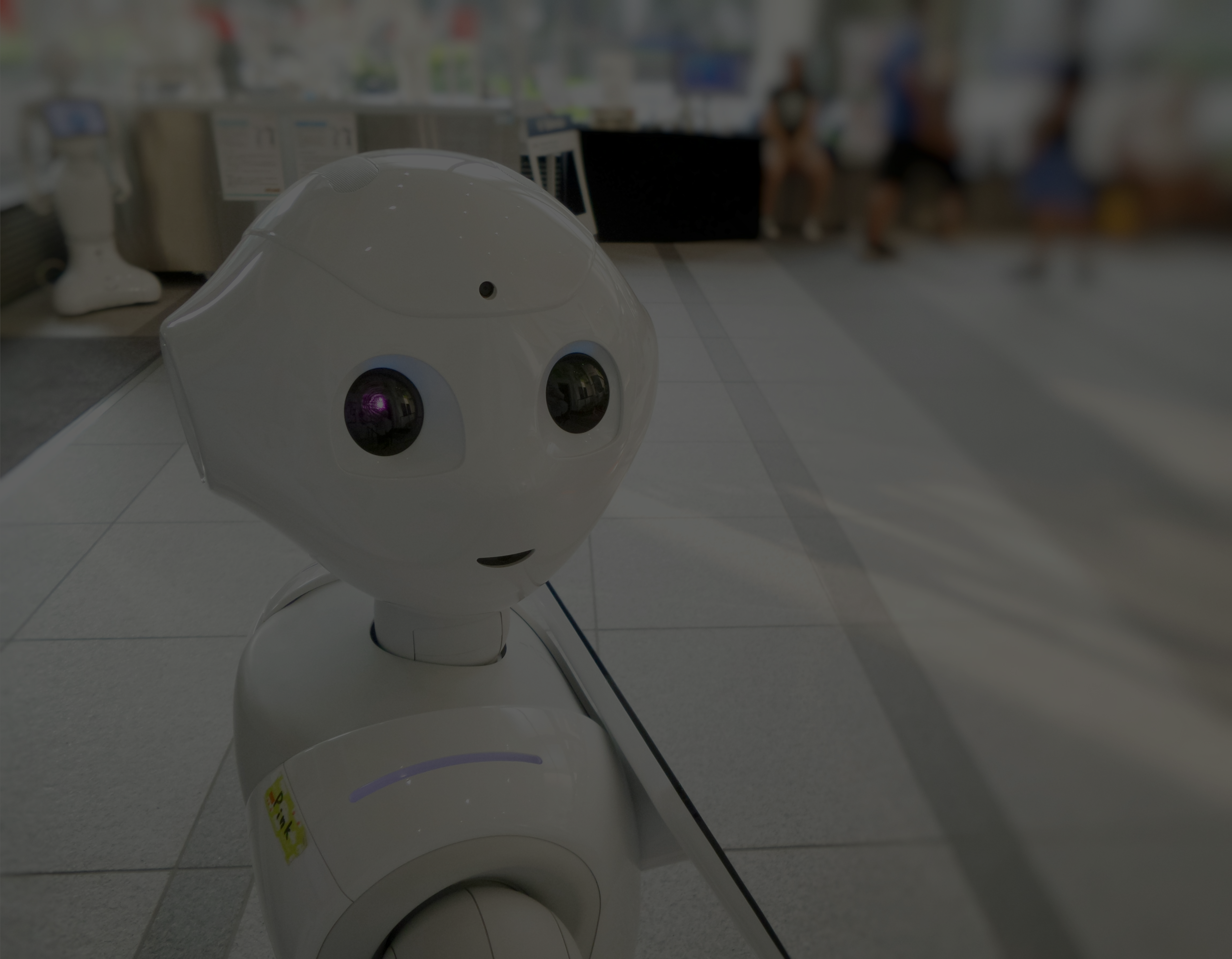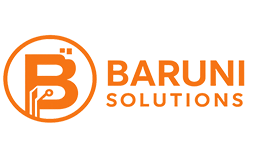Trusted by startups and Fortune companies
Our RPA Development Services
At Baruni, our RPA experts delve deep into your operational workflows, meticulously identifying automation prospects tailored to your business dynamics. We craft bespoke solutions aimed at not just optimizing operations but also unlocking maximum ROI.
RPA Consulting
Our RPA consulting services kick off with a comprehensive evaluation of your existing workflows, dissecting each element for automation potential. We then blueprint a tailored RPA deployment strategy, complete with a roadmap for seamless implementation. Project milestones are set, frameworks are defined, and methodologies are meticulously chosen to ensure a successful integration of RPA.
Bot Implementation
Our adept engineering team constructs a robust RPA infrastructure, built to withstand the rigors of real-world operations. We design RPA modules that seamlessly meld into your established workflows, ensuring minimal disruption. Rigorous testing guarantees flawless performance, while end-user training ensures a smooth transition to the new RPA ecosystem.
RPA Maintenance
Post-deployment, our RPA specialists offer comprehensive support, including hypercare, to fine-tune and optimize RPA tools. We meticulously analyze user feedback, continually enhancing the RPA solution and preparing a backlog for future iterations. As your business evolves, we stand by to assist with additional RPA integrations, ensuring sustained operational efficiency and long-term bot success.
Ready to Innovate?
Let's co-create groundbreaking products together, merging your vision with our expertise for unparalleled results.
Get StartedInfusing Innovation with Cutting-Edge Tech Stack
Our RPA development team boasts profound expertise in the latest technologies, ensuring seamless handling of projects spanning from simple to intricate requirements.
Cloud Computing Platforms
- Softomotive
- BluePrism
- UiPath
- WorkFusion
- PEGA
- KOFAX
- ANTWORKS
- Automation Anywhere
- Azure Logic Apps
- Microsoft Flow
- SAP
- Dialogflow
- Azure Automation
- Amazon LEX
- Microsoft Bot Framework
- Catalytic
- Kryon

Business Advantages of RPA
Boost the effectiveness and precision of business operations through the implementation of Robotic Process Automation (RPA). Here are the key benefits RPA brings to businesses:
Enhanced Efficiency
RPA streamlines and automates tasks that are repetitive, time-intensive, and prone to errors, thereby enhancing overall process efficiency.
Cost Savings
By automating workflows, businesses reduce expenses associated with human labor, as well as the need for additional hardware and software licenses.
Improved Accuracy
Automated processes are inherently more precise than manual ones, resulting in fewer errors and minimizing wasted time and resources.
Scalability
RPA systems efficiently manage increased workloads as businesses grow, without necessitating additional human resources, thus facilitating scalability.
Elevated User Experience
RPA manages human interactions automatically, enhancing the overall user experience and allowing employees to focus on tasks that add value.
Enhanced Business Agility
RPA empowers organizations to automate processes swiftly, enabling them to respond promptly to market opportunities and threats, thereby fostering better business agility.
RPA Services Provider
Our mission is to empower businesses worldwide to achieve scalability, transformation, and a competitive edge through our cutting-edge RPA consulting services.
We serve a diverse clientele ranging from startups to Fortune 500 companies, digital agencies to SMEs, and governmental organizations. Our reputation in the industry is built on the following unique selling points:
- to India's Top 1% Software Talent
- Trusted Partner for Startups to Fortune 500 Enterprises
- End-to-End Solutions from Concept to Deployment
- Global Presence with Time-Zone Friendly Services
- Stringent Data Security Measures
- On-Time Delivery with Transparent Processes
Ready to Innovate?
Let's co-create groundbreaking products together, merging your vision with our expertise for unparalleled results.
Get StartedGuide to Robotic Process Automation (RPA) Development for Users
Guide Topics
What is RPA development?

RPA development encapsulates the creation and deployment of solutions leveraging Robotic Process Automation (RPA) technology. This involves crafting intelligent software agents, or "bots," programmed to automate repetitive, rule-based tasks traditionally handled by humans. The primary aim is to streamline organizational workflows, bolster efficiency, and reduce manual intervention through intelligent automation.
The RPA development journey unfolds through several pivotal phases:
- Requirement Analysis: Collaborating closely with stakeholders to discern specific processes, tasks, and objectives earmarked for automation. This phase delves into identifying areas where RPA can yield maximal benefits and outlines the project's scope comprehensively.
- Process Mapping: Meticulously documenting the targeted workflows, intricately detailing each step, input and output parameters, decision-making nodes, and procedural rules. This meticulous mapping provides a panoramic view of the tasks primed for automation.
- Designing the RPA Solution: Meticulously selecting the most suitable RPA tools and platforms, crafting intricate workflows, scripting automation routines, and configuring the system to seamlessly interface with a diverse array of applications and systems.
- Development and Testing: Employing RPA development tools and languages to craft the software robots, adeptly programming them to execute the designated tasks and interact seamlessly with relevant applications or systems. Rigorous testing ensues to validate the solution's accuracy, reliability, and operational efficiency.
- Deployment and Integration: Effectively rolling out the advanced RPA solution into the targeted operational ecosystem, potentially entailing seamless integration with existing systems, databases, or applications. Stringent security measures are embedded to safeguard sensitive data and ensure regulatory compliance.
- Monitoring and Maintenance: Continuously monitoring the deployed RPA solution for performance, efficacy, and potential operational hiccups. Routine maintenance and updates are administered to adapt to evolving business processes and technological landscapes.
Effective RPA development necessitates a harmonious fusion of technical acumen, profound process understanding, and robust stakeholder engagement. By adeptly crafting and deploying RPA solutions, organizations can orchestrate operational efficiencies, augment productivity, mitigate errors, and liberate human capital for strategic endeavors.
RPA Market Insights:
The global Robotic Process Automation (RPA) market is poised to soar to an impressive $31 billion by 2030, as per Research and Markets projections.
McKinsey reports that 70% of organizations have initiated their automation journey, with numerous currently in the pilot phase, indicating a widespread adoption trend.
Automation Anywhere highlights that a staggering 95% of businesses regard automation as a pivotal component in their digital transformation blueprints, underscoring its critical role in modernizing operations.
Variations in RPA

RPA, or Robotic Process Automation, encompasses a spectrum of automation approaches tailored to diverse operational needs:
- Autonomous RPA: Autonomous RPA epitomizes automation independence, where software bots execute tasks without human intervention. These bots operate discreetly in server environments, handling repetitive tasks with minimal human interaction. Autonomous RPA is ideal for streamlining high-volume, rule-based processes with consistent outcomes.
- Collaborative RPA: Collaborative RPA thrives on synergy between software bots and human operators. Here, bots work alongside humans in real-time, providing on-demand assistance and enhancing operational agility. Operating within user workstations, collaborative bots excel in tasks requiring nuanced decision-making and human judgment.
- Adaptive RPA: Adaptive RPA represents a dynamic fusion of autonomous and collaborative approaches. It orchestrates a harmonious blend of automation modes to optimize process efficiency and adaptability. Leveraging adaptive RPA, organizations can navigate complex workflows seamlessly, harnessing the strengths of both autonomous and collaborative automation for superior outcomes.
RPA vs. Traditional Software Development
RPA development diverges from conventional software development in several distinctive aspects:
- Accelerated Deployment: RPA solutions boast rapid development and deployment cycles, thanks to intuitive development tools that facilitate visual, code-free approaches. This expedites the journey from concept to execution, unlike the more time-consuming traditional software development.
- Adaptability and Nimbleness: RPA solutions exhibit remarkable flexibility, adeptly adjusting to evolving business needs and dynamic process landscapes. Their capacity to seamlessly integrate with various systems and applications, sans extensive integration efforts, underscores their agility and versatility.
- Seamless Integration: RPA seamlessly integrates with existing systems and applications without necessitating disruptive modifications or infrastructure overhauls. This non-invasive integration ensures compatibility with legacy systems and facilitates harmonious assimilation into established workflows.
- User-Friendly Interface Automation: RPA excels in automating user interface interactions, effortlessly replicating human actions such as clicking buttons and inputting data. In contrast, traditional software development may demand intricate API integrations or bespoke solutions to achieve comparable UI automation.
- Task-Specific Automation: RPA is tailor-made for automating repetitive, rule-based tasks, offering a focused approach to automation. Traditional software development, on the other hand, offers broader customization and intricate functionalities beyond task automation.
- Cost-Effectiveness: RPA development often incurs lower costs compared to traditional software development. The visual development paradigm and component reusability inherent in RPA streamline development efforts and minimize maintenance overheads, making RPA an economically viable solution.
Each approach, be it RPA development or traditional software development, presents distinct advantages suited to diverse automation needs. The choice between them hinges on project requirements, process complexity, and desired outcomes, ensuring a bespoke solution tailored to specific automation objectives.
Augmented RPA Integrations for Enhanced Value

- Optical Character Recognition (OCR): OCR technology equips RPA to proficiently handle tasks involving document scanning, text recognition, and conversion into editable formats. With OCR, RPA can extract invaluable information from documents, fueling its automated processes.
- Natural Language Processing (NLP): NLP broadens RPA's horizons by enabling it to comprehend and interpret written and spoken language. By embracing NLP, RPA can sift through diverse text data sources, categorize information, and derive meaningful insights. This integration empowers RPA to navigate through structured, unstructured, and semi-structured data with finesse.
- Machine Learning (ML): ML integration empowers RPA systems to evolve and adapt autonomously. With ML, RPA can tackle intricate tasks by leveraging algorithms that enable automation to navigate diverse scenarios seamlessly. This fusion augments RPA's problem-solving prowess.
- Computer Vision (CV): Computer vision empowers RPA bots to visually interpret and comprehend interface elements. By embracing CV technology, RPA can automate processes involving visual recognition. This enables robots to interact with on-screen elements across various operating systems and frameworks. With human-like recognition capabilities, RPA can accurately capture and interpret visual information.
These integrations profoundly enhance the functionality and worth of RPA solutions, paving the way for new automation possibilities and intelligent decision-making avenues.
Tailor Your Hiring Experience with Baruni Solutions
At Baruni Solutions, we offer a variety of hiring models designed to meet your unique needs

Dedicated Team
(also known as product engineering
teams)
Our dedicated team model provides a highly skilled, autonomous group of
professionals,
including project managers, software engineers, QA engineers, and more. This team rapidly
delivers technology
solutions, managed collaboratively
by a Scrum Master and
your product
owner.

On-Demand Talent Surge
(also known as team extension or staff augmentation)
Perfect for businesses of all sizes, team augmentation allows you to seamlessly add skilled professionals to your team to fill talent gaps. These augmented team members integrate into your local or distributed team, participate in daily meetings, and report directly to your managers, enabling immediate and on-demand scaling.

Tailored Project Solutions
(best suited for small to mid-scale
projects)
Fixed Price Model:
Best suited for small to mid-sized projects with well-defined specifications, scope, deliverables, and acceptance criteria. We provide a fixed quote based on detailed project documentation. Fixed costs for well-defined project scopes.
Time & Material Model:
Ideal for projects with undefined or evolving scope and complex requirements. This model allows flexible hiring of developers based on the time invested in your project.
Frequently Asked Questions
- Proven track record: We have successfully delivered numerous RPA projects for our clients, ensuring their satisfaction and success.
- Expertise and experience: Our team comprises highly skilled RPA professionals adept at delivering top-notch work within deadlines and budgets.
- Flexible engagement models: We offer customized engagement models to meet your specific needs and preferences.
- Competitive pricing: Our RPA services come at competitive prices, ensuring value for your investment.
- Customer satisfaction: We prioritize customer satisfaction and strive to exceed expectations in every project.
We have extensive experience across industries, including healthcare, accounting, and financial services, providing tailored RPA solutions.
Client Feedback on Our Services
We sincerely appreciate the trust our clients place in us and take pride in providing quality solutions that surpass their expectations. Here's what some of them have to say about their experiences:






